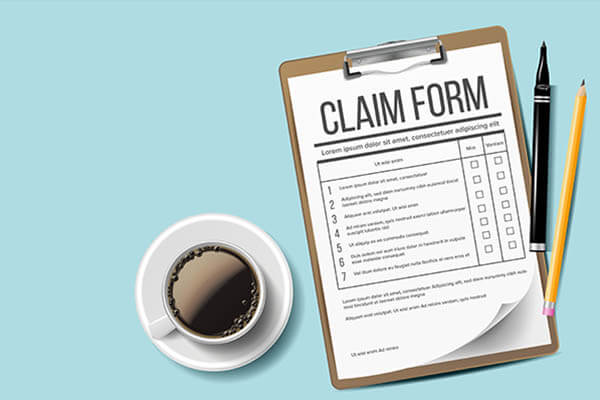If you are injured on the job or suffer a work-related illness, you may qualify for financial benefits that fall under workers compensation.
Understanding how to file for workers comp is key to claiming the reward(s) — from medical expenses to payments for permanent disability — to which you’re legally and morally entitled.
At the risk of being late to the party, it’s a good idea to know — while you’re still hale and hearty — whether your employer is obliged to provide workers compensation. Most employers are governed by individual state plans and must provide it to their employees.
To find out if your employer is covered, search online for your state and the phrase “workers compensation verification”
Most states will have a database which displays whether your employer is insured, the name of the insurance company and the policy number.
It’s also prudent to know whether you are covered under that plan. For instance, you may work alongside regular, full-time employees, carrying out duties that are indistinguishable from your colleagues’, but if you were hired on a contract, you might not qualify for workers compensation. In that case, recovering your work-related injury or illness costs may be complicated.
Something else to keep in mind if you were hired as contract personnel: Do you suspect you’re being treated unfairly simply so your employer can avoid providing workers compensation coverage? You might want to consult workers comp attorneys to sort your legal standing.
Step 1: Notify Your Employer
Assuming your early due diligence satisfied that your employer is a participant and you are covered for workers comp benefits you must, at your earliest convenience, notify your employer when you get hurt.
One reason is because state plans vary widely in the amount of time employees have to report their work-related maladies, a provision known as a “statute of limitations.” Another reason is delays are unwise and potentially harmful to your claim, especially when you can pinpoint the moment you were injured on the job or were sickened by work-related conditions.
Statute of Limitations: How Long Does an Employee Have to Report an Injury or Illness?
There is a stark difference between reporting an injury or illness, and filing a claim. While most states allow at least two years to file claims — others are substantially more restrictive — time to report the incident to your employer is far less generous, usually between 30 and 60 days.
Finding the deadlines at your workplace might be as easy as reviewing the bulletin board in the break room.
Report Your Injury
It’s always wise to notify your supervisor in writing. Even if your employer allows verbal reports, be certain to follow up in writing, keeping dated copies of the reports and related medical records for yourself.
Whether the injury was instantaneous or developed over time, at minimum, your written notice should include the following:
- Your name
- Your address
- Your department and/or division
- Time and place of the accident
- A brief description of how your accident occurred
- The type of injury, or injuries, you suffered
- All places where you are having pain, numbness, tingling, or swelling
For your benefit, and that of your employer — good faith is a great place to begin — make certain you receive a time-stamped copy of your report. If you notify your supervisor via email, send it with a notification of receipt, and keep a copy.
Your employer may provide forms for you to complete. Make certain you retain a copy for your records. Even if your work-related injury seems minor — you punctured your finger with a stapler; you twisted an ankle on loose carpet — you’ll want documentation if, later on, symptoms induced by the episode interfere with your ability to perform your job.
Keep in mind, also, that while certain catastrophic moments are easy to identify — you slipped, you fell, you injured your hand on a piece of equipment — workmans comp also addresses maladies that creep up over time, also known as repetitive-motion injuries. Carpal tunnel syndrome is perhaps the best known of these ailments.
In short, when it comes to workplace injuries — with apologies to real estate professionals — it’s all about reporting, reporting, reporting.
This should go without saying, but, you know, lawyers: If your injury requires medical care, see to that immediately. You can’t report if you don’t survive.
Reporting a Disease
To receive compensation, the illness or occupational disease should be recognized as an industrial injury. You must be able to ascertain when you began feeling the effects of your illness or disease, and how, and the degree to which, you were compromised. If you work in a high-risk industry, or have a job prone to work-related illnesses, it’s not a bad idea to maintain a journal, along with making sure you keep up with your annual physical exams.
Sometimes, despite the best efforts of employers working with local, state, and federal regulators, occupational illnesses arise — that is, an illness or disease has come about as a result of work or working conditions.
Perhaps there’s been exposure to things known to trigger diseases. Firefighters exposed to asbestos can develop mesothelioma. Other hazardous substances are linked to asthma. Tennis elbow and other painful joint conditions can result from repetitive lifting. Persistent noise exposure can lead to hearing loss.
Sometimes, the issue is sufficiently documented to be included on the occupational disease list. However, if the illness or disease is not already on the list, there is yet a chance to recoup for your loss if your state’s Occupational Diseases Committee state it is beyond a reasonable doubt that your condition came about by environmental hazards and other workplace factors.
Step 2: Fill Out the Claim Form
Once you have made certain you can provide evidence that your injury or illness qualifies as work-related — your strained back is because you had to lift something heavy, not from hoisting rambunctious grandchildren — you’ll be called on to fill out a claim form.
Your employer may supply it, but most states also require doctors’ offices and emergency rooms to keep filing forms on hand. A last resort is to contact your state workers compensation office for the form and, possibly, guidance about how to fill it out.
Complete only the employee section. The categories will vary, slightly, from state to state as noted in part above.
You should be prepared to provide the following:
- Name
- Date and time of injury
- Description of how injury occurred
- What job duty you were performing at the time of injury
- Which area(s) of your body was/were injured
- Recommendations about how to prevent a recurrence
- Additional information you’d like to include
Step 3: Insurance Company Approves or Denies Your Claim
Once your paperwork and that of your employer is completed, you most likely will be referred to a medical professional to verify your claims of work-related injury or illness. More forms will be involved; make certain they specify you were injured, or became sick, on the job, and that the setback happened in the workplace.
From there, your employer will file all the relevant documents with its insurer, which will rule on whether your claim is accepted or denied.
Unless you are one of the specialty workers listed above, your waiting period will depend on the state where your claim was filed. Generally, however, you should hear within two to three weeks after your documents are submitted.
Claim Approved
If the insurer approves the claim, the employee has decisions to make.
The employee can choose to:
- Accept the payment offer, which may cover a range of concerns, including medical costs, disability payments, and a portion of lost wages (usually one-half to two-thirds). Very much on the upside, payments for foregone wages are not taxable.
- Negotiate for a settlement, either lump sum or structured; such an arrangement could appeal to the insurer and employer, which has an interest in closing the book on your claim as soon as possible.
Claim Denied
If the insurer denies your claim, you have two choices:
- Ask the insurance company to review its decision.
- Appeal
Find out why your claim was denied. Maybe your injury is not available for compensation; this is especially true with stress-related injury claims, which are difficult to prove in most states (but not California, which has coverage for stress-related injuries written into law). Maybe your claim wasn’t timely, you didn’t seek medical care, or it’s not clear your injury/illness was work-related.
Before plowing into a full-blown appeal, however, check with your employer, or its insurance carrier, about whether there’s a simple solution to the dispute. Perhaps there’s a clerical error, or an error in understanding.
If there’s no easy, satisfactory solution in sight and you have to mount an appeal, you’re going to want legal representation. The way ahead is complicated and, most likely, unfamiliar to you. The insurance company knows the ropes and the key players and is lawyered up; you don’t want to take on this fight alone.
If Your Employer Is Not Insured
With rare exception — certain agricultural workers, domestic employees, independent contractors — employers are required by workers comp law to cover their workforce with workers compensation insurance.
Again, you should inquire early on whether your employer is insured, particularly if your job involves a fair amount of risk. If, after you’re injured, you discover your employer isn’t covered, contact an attorney right away, or contact your state’s department of labor.
You still might be able to recover benefits through a stop-gap state fund. You may also have an action against your employer for negligence. Some states allow you to do both.
Navigating this tricky field when there is so much at stake is why you’ll want to check with a lawyer who specializes in workers compensation. And as they say on the radio, your consultation is free.
Sources:
- N.A. (ND) What To Do If You Are Injured At Work. Retrieved from https://www.workplacefairness.org/workers-compensation-what-to-do
- Pollard, C. (ND) How Long Do You Have to Report a Work Accident and Injury in Virginia? https://cpollardlaw.com/virginia-workers-compensation/how-when-to-give-notice-and-report-a-work-accident-and-injury-to-employer/
- Silverman, J. (ND) How Workers Compensation Works. Retrieved from https://money.howstuffworks.com/workers-compensation1.htm
- Simpson, K. (2016, May 9) Types of Injuries and Workplace Illnesses that Qualify for Workers Comp. Retrieved from https://blog.safetyculture.com/industry-trends/types-of-injuries-and-workplace-illnesses-that-qualify-for-workers-comp
- Sandvick, C.M. (2018, October 15) How to Apply for Workers Compensation. Retrieved from https://m.wikihow.com/Apply-for-Workers-Compensation
- N.A. (ND) What To Do If You Are Injured At Work. Retrieved from https://www.workplacefairness.org/workers-compensation-what-to-do#3
- Barreiro, S. (ND) How Long Will It Take For My Workers Comp Claim to Get Approved or Denied? Retrieved from https://www.lawyers.com/legal-info/workers-compensation/how-long-will-it-take-for-my-workers-comp-claim-to-get-approved-or-denied.html
- N.A. (ND) What Do I Do If My Employer Doesn’t Have Workers Compensation Insurance? Retrieved from https://thedisabilityguys.com/workers-compensation/faq/what-do-i-do-if-my-employer-doesnt-have-workers-compensation-insurance/


